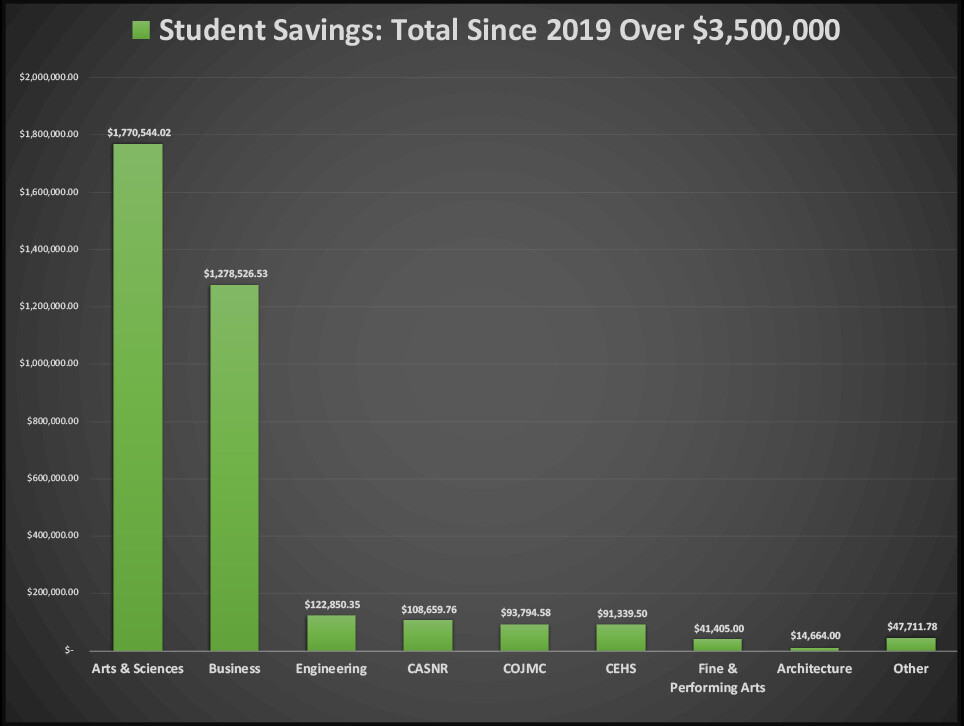
Since 2019, Nebraska's Successful Teaching with Affordable Resources Initiative — a campus initiative that works to make textbooks and course content more affordable — has saved students approximately $3.5 million.

Instructors can help keep those savings going by ordering affordable course materials for upcoming classes. Order deadlines are April 15 for summer sessions, May 15 for the 2021 fall semester, and Oct. 15 for the 2022 spring semester.
The initiative includes Unizin Engage and Follett Access programs, along with open education resources.
"Students want more affordable and accessible course materials,” said Erin Kruger, a senior political science and English major who serves on ASUN's academic committee. “Open educational resources and inclusive access are excellent learning materials that students can be using for their classes. They’re also less expensive and much more accessible options.”
The impact of this inclusive access is substantial for students. Textbook costs can decrease from as much as $318.25 in print to $67.50 in digital format. To date, cumulative savings for students in the College of Arts and Sciences is approximately $1.7 million, and in the College of Business, approximately $1.2 million. Cumulative savings for each college is listed on the STAR program website.

In summer 2019, Unizin Engage included 43 textbooks with more than $5,000 in estimated savings. By this spring, the program has been automated in Canvas and features 3,238 textbooks and more than $180,000 in estimated savings.
The Follett Access program started in 2019 with 143 textbooks valued at more than $5,000 in savings. This spring, those totals have grown to 10,875 textbooks and more than $655,000 in estimated savings.
Individual academic units are helping fuel program success. For instance, the Department of Communication Studies has recorded big student benefits through the STAR program.
"This attention to reducing costs and simplifying access has been well-received by our students and has contributed to our ability to be more pedagogically inclusive, ensuring all students have an equal opportunity to 'hit the ground running' at the start of the semester," said Kathy Castle, associate professor of practice and assistant chair of the communications studies department.
In the School of Biological Sciences, the life instructional team found value in tracking textbook usage patterns.
"Inclusive access allowed our team to lower the cost to our students, customize access on a semester basis, and ensure that our students have access to the text from day one," said Chad Brassil, associate professor of biological sciences. "In addition, some of our instructors are utilizing the Unizin Engage program to understand the patterns by which students use the text on a page-by-page basis."
The [STAR Initiative](https://teaching.unl.edu/star-initiative/) is supported by the Executive Vice Chancellor's Office, University Libraries, Information Technology Services and the Center for Transformative Teaching.







